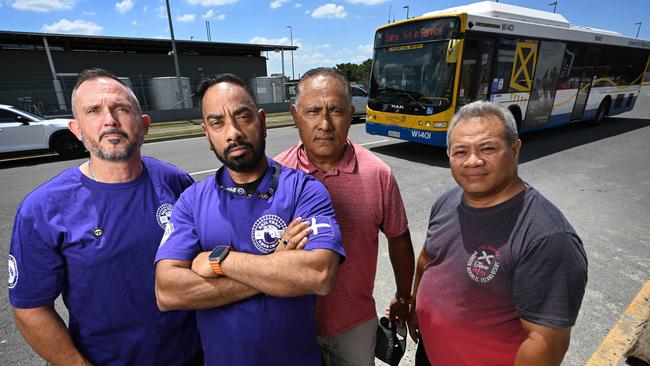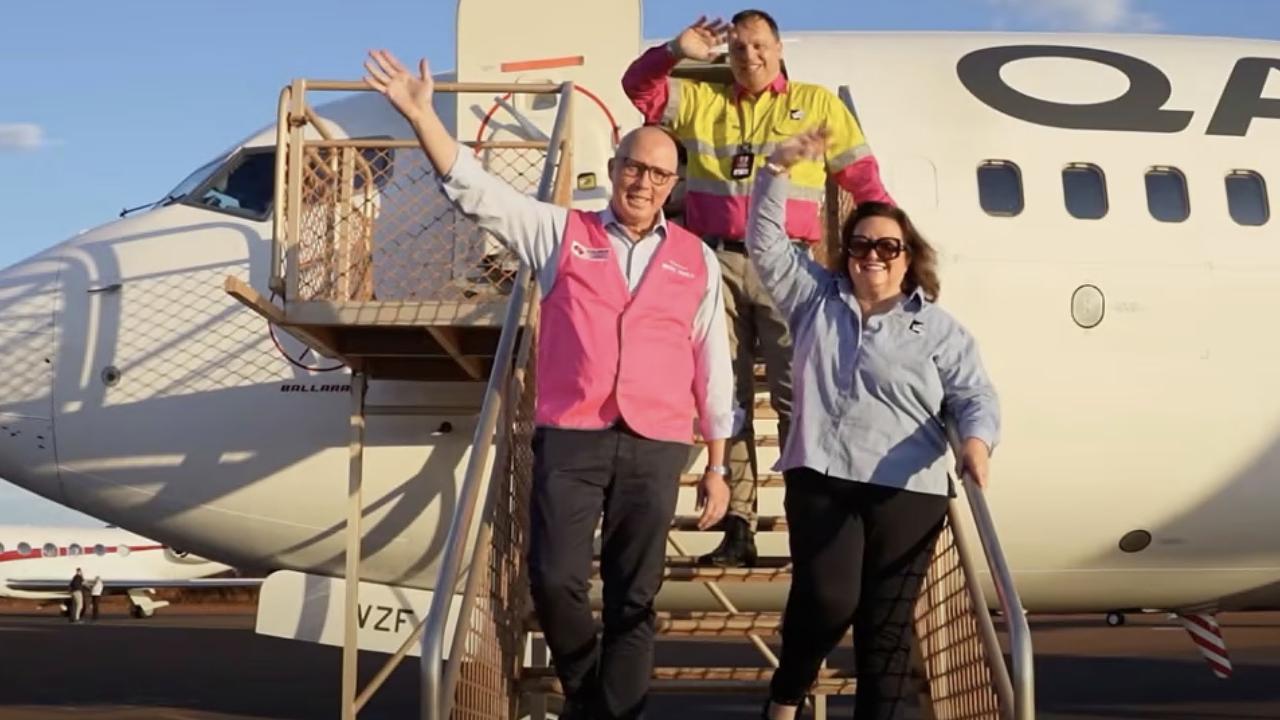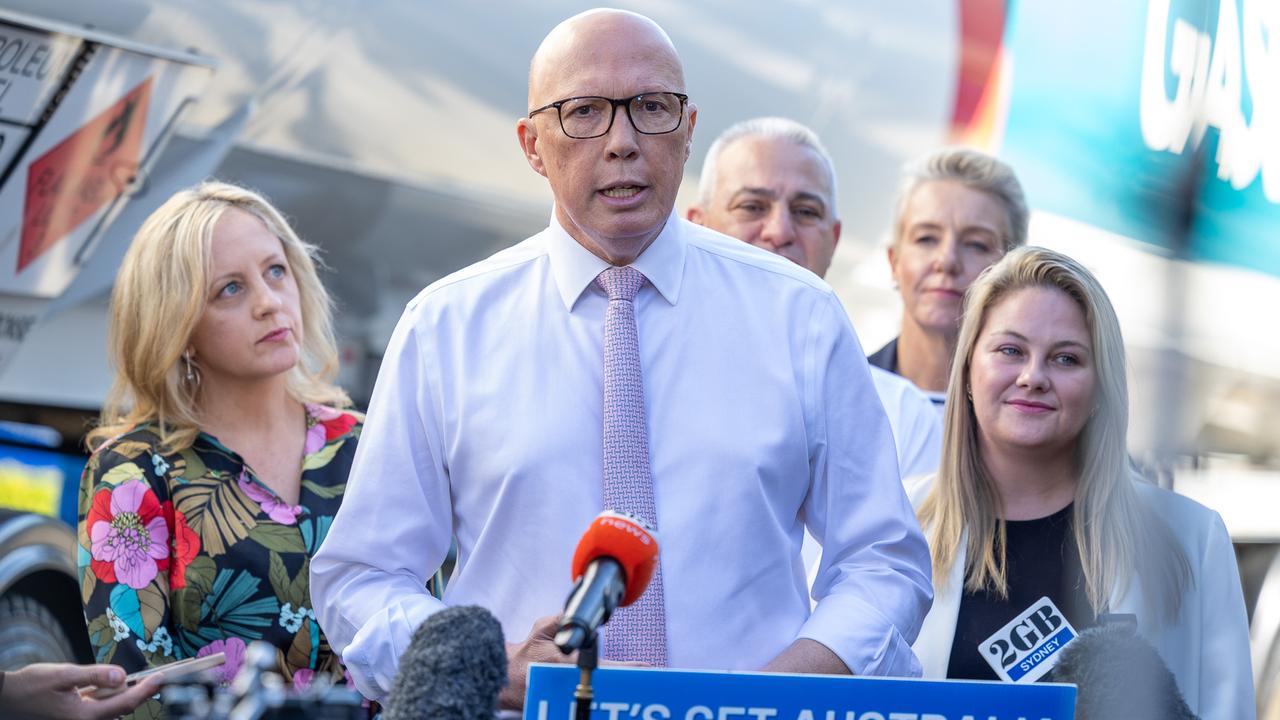Rampaging youth gangs turn Inala streets into no-go zones
Bus drivers are refusing to stop at night in Annastacia Palaszczuk’s electorate of Inala, with gangs of youths terrorising the council-run route in an escalating run of attacks.

Bus drivers are refusing to stop at night in Annastacia Palaszczuk’s electorate of Inala, with gangs of youths terrorising the council-run route in an escalating run of attacks.
The Queensland Premier returned to work on Monday from an overseas holiday to face growing public anger over the state’s youth crime wave in the wake of another alleged murder by a knife-wielding teen.
As Ms Palaszczuk responded to criticism of her government’s handling of youth crime, it has emerged her local constituents no longer have access to reliable public transport after dark.
The Rail, Tram and Bus Union have branded the route through her Inala electorate on Brisbane’s southwest outskirts as the most dangerous in the city, and it says it is getting worse.
“Drivers are afraid to come to work and afraid to drive into Inala,” assistant state secretary Tom Brown said.
“Since Christmas it has gotten even worse, there have been about 24 incidents; assault, spitting, abuse, threatening drivers, passengers attacking the bus from outside with bottles and rocks.
“That is what happens when you enter these danger zones.”
Mr Brown said drivers had begun boycotting routes in Ms Palaszczuk’s electorate after being confronted by gangs of up to 20 youths.
“The kids are running in packs of 15 to 20. As soon as they get on the bus it is trouble, trouble, trouble,” he said.
“The driver is under the constant threat of assault, as are the passengers.”
Mr Brown has called on the state government to mandate and finance full protective screens for drivers travelling into Inala, police to ride on problem routes and government traffic officers to take a tougher approach.
Senior network officers, employed by the government, have powers to handcuff, detain, search and fine problem passengers but Mr Brown said they had a “softly, softly approach to these gangs”.
“They are not really engaging with them, just asking them to behave themselves,” he said.
Ms Palaszczuk said her government was putting on more security officers and expanding the rollout of bus driver safety barriers around the state.
“These measures will be targeted in hot spot areas in the Brisbane, Townsville and Gold Coast regions,” she said. “This is about making buses a safer place for customers and bus drivers alike.”
Brisbane City Council says it is hamstrung on the issue, having already introduced CCTV, driver barriers, emergency buttons, duress alarms, radio and GPS on every bus and is increasing the number of security guards on these services.
“Youths, often in large numbers, are being identified in the majority of assaults and incidents of aggressive behaviour towards passengers and drivers on these routes,” a spokesman for Brisbane mayor Adrian Schrinner said.
“In one case before Christmas, 20 youths were allegedly involved in an assault and robbery of a passenger.
“What’s needed is patrols by senior network officers who have real power to detain these young criminals and stronger laws that ensure the next bus they’re on is the one to detention.”
Youth crime has become a hot-button issue in Queensland, given added urgency by the deaths of David Connolly who was stabbed to death on Sunday in the up-market suburb of Wilston, and Brisbane woman Emma Lovell, allegedly killed by knife-wielding teens in a Boxing Day home invasion.
The 17-year-old boy charged with Mr Connolly’s murder had his matter mentioned briefly in court on Monday and bail was not sought.
The Australian understands the boy has an “extensive” criminal history.
Speaking on Monday after the first cabinet meeting of the year, Ms Palaszczuk said it was “unbelievable these things are happening” and called for more police patrols.
“People have the right to feel safe in their streets and in their neighbourhoods,” she said.
“It is a very complex issue, I think everyone realises that.”
Ms Palaszczuk stopped short of declaring a youth crime crisis, but acknowledged “there are a number of young people out there causing considerable harm”.
“I believe we need to throw everything at this, we absolutely do,” she said.
‘Some of these children come from very complex backgrounds.
“I would like to see these young people get jobs, I would like to see them into work.”
New youth justice reforms, announced days after Ms Lovell’s death last month, will be introduced to state parliament when it returns in late February.
Under the second suite of youth crime reforms in as many years, penalties will increase for offenders who boast about crimes on social media.
The maximum sentence for stealing a car will also increase from seven to 10 years and a harsher penalty of 14 years’ jail will be introduced for offences committed at night.
Ms Palaszczuk flagged the reforms may bypass usual committee process – where public feedback is sought – if the opposition agreed to urgently pass laws.
She said since December police had charged 818 children with 2052 offences.



To join the conversation, please log in. Don't have an account? Register
Join the conversation, you are commenting as Logout